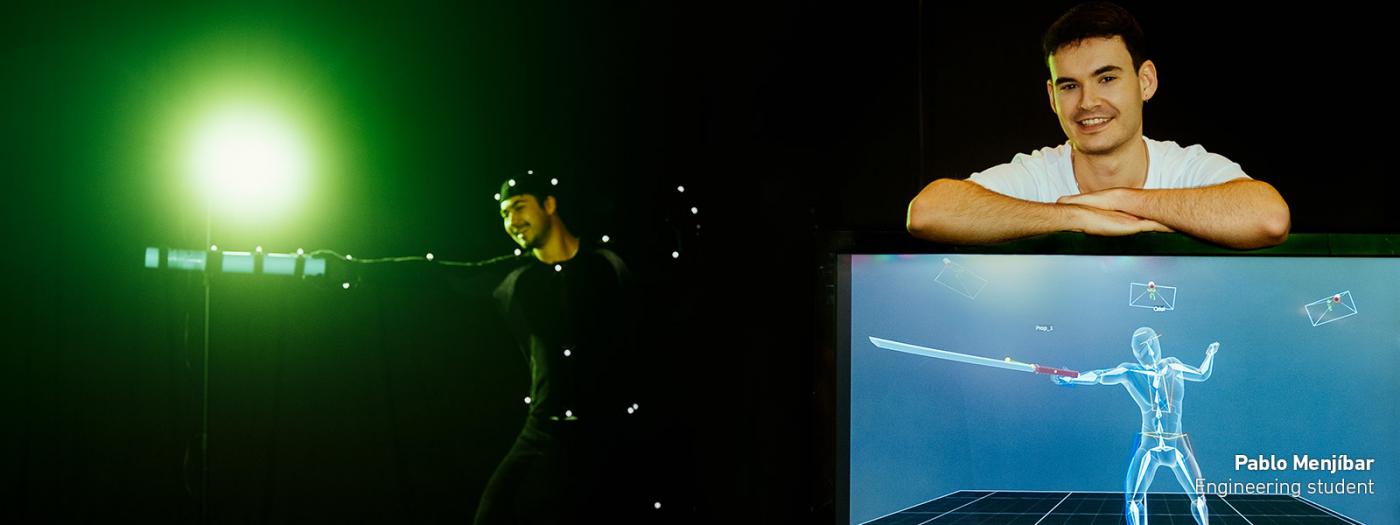Images are everywhere. We live in a world full of audiovisual stimuli, and we are constantly being bombarded with images and videos. If that wasn't enough, almost every one of us carries a smartphone in our pocket, and we constantly take pictures and capture videos of our surroundings.
Digital image processing techniques are used in a wide range of applications. In addition to applications in medicine and space programming, computer procedures are used to improve contrast or encode color intensity levels to facilitate the interpretation of X-rays and other images used in industry, medicine, and space. biological sciences.
This subject is an introduction to the broad field of digital image processing, providing students with the basic knowledge in this field.
The course begins by presenting fundamental concepts for the analysis of images in both the spatial and frequency domains. In addition, techniques for image modification are studied, emphasizing linear and nonlinear filtering techniques. The final part of the course deals with techniques that allow you to analyze images and extract features associated with them that allow you to perform tasks of parameterization and object recognition, including an sneak peek to deep learning applied to image classification.
In addition, the subject has a strong practical focus. Classes will be theoretical and practical, and students will be required to attend with their laptops with Matlab installed. In addition, there will be various practices that allow students to apply the contents of the subject to real problems of digital image processing.
Titular Professors
Learning Outcomes of this subject are:
LO.1 Basic general knowledge of digital image processing.
LO.2 Ability to apply image processing knowledge to practice.
Chapter 1. Introduction to digital image processing
1. The ubiquity of images
2. Types of images and applications of digital image processing
3. The human visual system
4. Acquisition of digital images
5. Basic image operations
6. Histogram of an image
7. Color spaces
Chapter 2. Enhancing and restoring images
1. The importance of image enhancement and restoration
2. Contrast enhancement
3. Noise reduction in images
4. Mathematical morphology
Chapter 3. Image segmentation
1. The importance of image segmentation
2. Segmentation based on discontinuity
3. Segmentation based on similarity
4. Segmentation homogeneity criteria
Chapter 4. Detection and recognition of objects
1. The importance of detecting and recognizing objects in images
2. Template matching
3. Image classification
The course is taught in 2 weekly lessons, one lasting 100 minutes and the other one, 50.
The usual dynamics of each class will consist of a combination of theoretical explanations always followed by theoretical and/or practical exercises that exemplify what has just been explained. Applied methodologies: master class (MD0), problems and exercises class (MD1), lab practice (MD2).
Additionally, the eStudy provides resources for the student to carry out self-learning complementary practical activities. Applied methodology: self-paced learning (MD5).
Finally, in order to achieve an applied view of the concepts presented in class, two practical exercises in group using the Matlab software will be undertaken. Applied methodology: challenge-based learning (MD11).
See the electronic folder of the subject
See the electronic folder of the subject
- Slides for lectures
- Anil K. Jain, `Fundamentals of digital image processing´, Prentice Hall, 1989
- Gonzalo Pajares, Jesús M. de la Cruz, `Visión por computador´, Ra-Ma
- Rafael C. Gonzalez, Richard E. Woods `Digital Image Processing´, Addison Wesley
- Arturo de la Escalera. Visión por computador. Prentice Hall 2001.
- Jain, Ramesh, Kasturi, Schunk, Brian. Machine Vision. MacGraw Hill, 1995.
